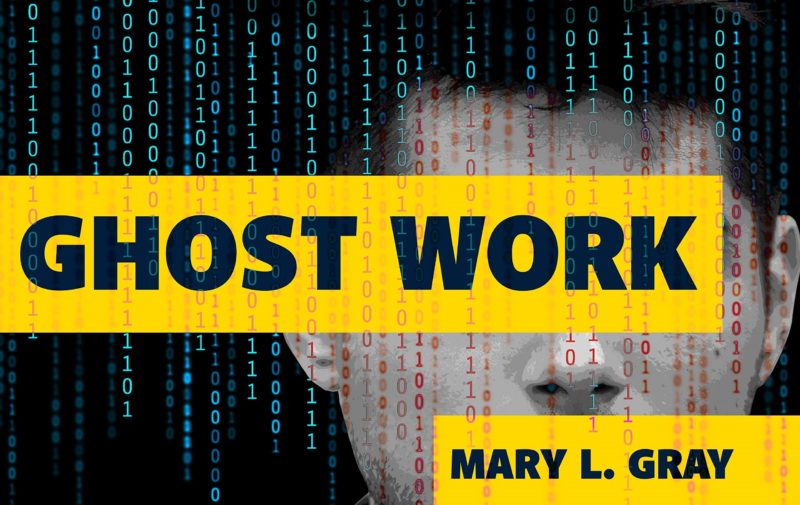About the event
THIS EVENT IS FREE AND OPEN TO THE PUBLIC, BUT PLEASE REGISTER HERE TO ACCESS THE ZOOM LINK AND ATTEND. Please reach out to [email protected] for accommodation requests, questions or concerns.
In the recent book she co-authored, Ghost Work: How to Stop Silicon Valley from Building a New Global Underclass, Mary L. Gray exposes
the invisible human workforce that powers the web. The reliance on
on-demand workers to help AI systems run, Gray argues, has only
increased during the pandemic, further eroding full-time employment and
benefits. Will the post-COVID society create new forms of ghost work, or
can technical innovation assist and empower human labor, such as that
of trusted health care workers? Gray—a 2020 MacArthur Fellow, a senior
principal researcher at Microsoft Research, and a faculty associate at
Harvard University—addresses these urgent questions.

Mary L. Gray
is Senior Principal Researcher at Microsoft Research and Faculty
Associate at Harvard University’s Berkman Klein Center for Internet and
Society. She maintains a faculty position in the Luddy School of
Informatics, Computing, and Engineering with affiliations in
Anthropology and Gender Studies at Indiana University. Mary, an
anthropologist and media scholar by training, focuses on how people’s
everyday uses of technologies transform labor, identity, and human
rights. She sits on several boards, including Public Responsibility in Medicine and Research
and the California Governor’s Council of Economic Advisors, in addition
to chairing the Microsoft Research Ethics Review Program—the only
federally-registered institutional review board of its kind in the tech
industry. In 2020, Mary was named a MacArthur Fellow for her
contributions to anthropology and the study of technology, digital
economies, and society.
Organized and hosted by The Center for the Study of Women and Society, and co-sponsored with Center for LGBTQ
Studies (CLAGS), The Center for Humanities, The Graduate Center PhD
Program in Anthropology, The Feminist Press, The Graduate Center
Library, the PublicsLab, and Public Programs.

